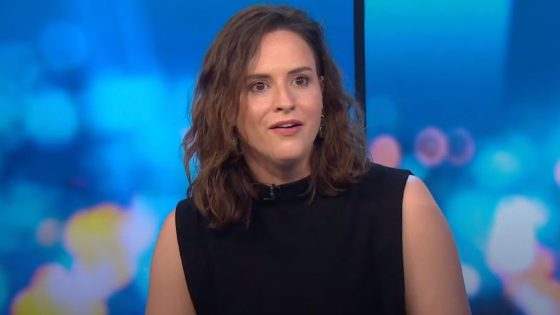Many investors still remember what it was like during the 2008 financial crisis, when panic swept through the markets and wiped out trillions of dollars in wealth. The fear and uncertainty led to massive sell-offs, plummeting stock prices, and a severe liquidity crisis. Many individuals saw their retirement savings decimated, homes lost value, and unemployment rates soared as businesses closed or downsized.
It’s a chapter that no one wishes to revisit. However, economist Harry Dent foresees an even more severe crisis on the horizon.
Don’t miss
In a recent interview with Fox News Digital, Dent highlighted that the U.S. has been experiencing an extended bubble, which poses a significant threat to the stock market.
“This bubble has been going [for] 14 years. Instead of most bubbles [going] five to six, it’s been stretched higher, longer. So you’d have to expect a bigger crash than we got in 2008 to ’09,” he explained.
Just how significant could this crash be?
Massive, according to Dent.
“I think we’re going to see the S&P go down 86% from the top, and the Nasdaq 92%. A hero stock like Nvidia, as good as it is, and it is a great company, [goes] down 98%. Boy, this is over,” Dent predicted.
Given the extensive exposure many people have to the stock market through their retirement savings, a severe downturn in these benchmark indices could be devastating. During the market sell-off in 2022 — which pales in comparison to Dent’s projections — CBS News reported that 401(k) and IRA plan participants experienced an estimated loss of around $3 trillion.
It’s worth mentioning that this isn’t new for Dent. As an October 2023 article from ThinkAdvisor noted, “For several years now, Dent has been forecasting ‘the crash of a lifetime.’ Now, he says, 2024 will be the year it hits — ‘two years later than it should have,’ according to his calculations. But ‘it’s starting now,’ he insists.”
Recession or depression?
The 2008 financial crisis sparked the Great Recession, which is widely considered the most severe economic downturn since the Great Depression.
According to Dent’s prediction, the ongoing bubble will lead to more than just a recession.
“Bubbles are not followed by recessions, they’re followed by depressions,” he stated.
Read more: Rich young Americans have lost confidence in the stock market — and are betting on these assets instead. Get in now for strong long-term tailwinds
Dent drew parallels to historical episodes of depression.
“When you hear the Great Depression, or the long depression of 1873 to ’96 — those followed major bubbles. And the other one was the Great Depression of 1836 to 42 — that followed a major bubble back then. So bubbles don’t end well, and this is the largest and longest bubble,” he explained.
To be sure, stocks still seem to be on an upward trajectory. The S&P 500 has climbed 14.5% in 2024, while the tech-heavy Nasdaq Composite is up 19.5% during the same period.
Dent said that when the U.S. Federal Reserve implements stimulus monetary policies or starts tightening, it can take up to two years for the impact to manifest in the economy. He noted that the stimulus continued for 14 years until March 2022, when the Fed began raising interest rates. According to Dent, the cumulative 525-basis point rate hike by the U.S. central bank will “hit the hardest” in early to mid-2025.
Ultimate safe haven?
If you share this concern and believe that the market is heading for a crash of historical proportions, you are probably wondering where to find refuge during the storm.
Dent has one asset in mind: “There really is nowhere to hide except the safest bonds in the world.”
He’s referring to U.S. Treasury bonds. The reason has to do with the size of the U.S. economy and the Fed’s ability to print money.
“We’re the largest economy in the world. We will endure this downturn. And if they can print money to create a bubble, they can print money to pay off their bonds,” he stated.
This isn’t the first time Dent has suggested this asset class. In the interview with ThinkAdvisor, he described Treasuries as the best safe haven, arguing that the U.S. “is the best house in a bad neighborhood” in the event of a downturn.
What to read next
This article provides information only and should not be construed as advice. It is provided without warranty of any kind.
Source Agencies

